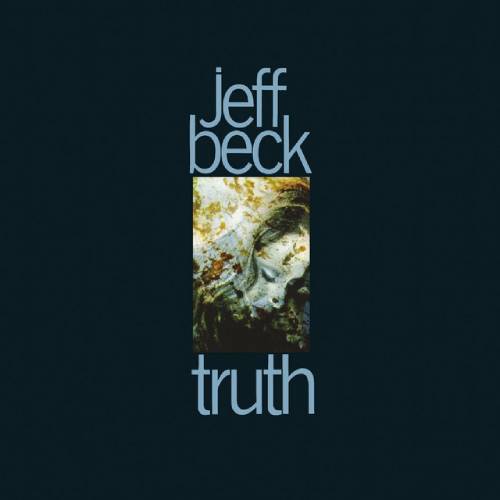
Jeff Beck, born Geoffrey Arnold Beck on June 24, 1944, established himself as a legend of the electric guitar. With a career spanning over five decades, Beck is celebrated for his ability to merge diverse genres such as rock, jazz, and blues, thus forging a unique musical style.
From a young age, Beck was drawn to music, building his own instruments and exploring the endless possibilities of the electric guitar. His exceptional talent earned him a spot in the Yardbirds, a leading band of the British rock scene in the 60s, before embarking on a successful solo career.

Beck distinguished himself with his innovative approach to the guitar, employing avant-garde techniques like feedback, bending, and extensive use of vibrato, earning him the nickname “guitar wizard.” “I don't play the guitar, I control it” is a quote that perfectly encapsulates his musical philosophy.
His discography is a testament to his musical genius, with albums like “Blow by Blow” and “Wired” revolutionizing instrumental guitar perception. Beck also collaborated with renowned artists, from Stevie Wonder to Johnny Depp, proving his adaptability and undeniable influence on contemporary music.
Behind the genius guitarist was a man passionate about vintage cars, another facet of his complex personality. Beck shared a deep friendship with Jimmy Page, another guitar icon, illustrating camaraderie within the music industry.
Jeff Beck passed away on January 10, 2023, but his legacy lives on. His music continues to inspire generations of musicians, proving that his contribution to the world of electric guitar is immortal. As he liked to say, “Music is the pathway to the soul,” and his soul continues to resonate through his timeless melodies.
The album : Truth
Blending bold mixes of blues, rock, and folk, “Truth” is often cited as a precursor to heavy metal. This album not only defined Beck's career but also left an indelible mark on the musical landscape of the time.
The genesis of “Truth” is a tale of intense and innovative recording sessions. Beck, along with musicians like Rod Stewart on vocals, Ron Wood on bass, and Mickey Waller on drums, ventured into uncharted sonic territories. “We were in unknown territory, experimenting with every note,” Beck recalled. This collaboration yielded classics like “Shapes of Things” and a memorable cover of “You Shook Me,” showcasing Beck's extraordinary talent as a guitarist and musical visionary.
The critical reception of “Truth” was overwhelmingly positive, praising Beck's virtuosity and the freshness of the album. Prestigious magazines such as Rolling Stone recognized the album as a masterpiece, influencing countless artists and bands to follow. Beck's experimental approach was seen as revolutionary, blurring the lines between musical genres and setting new standards for guitarists.
The impact of “Truth” on rock music is undeniable. The album not only launched Jeff Beck's career as a solo artist but also paved the way for genres such as hard rock and heavy metal. “Truth” remains a testament to Beck's genius, proving that music can transcend boundaries to touch the soul.
The song : Shapes Of Things
Originally performed by The Yardbirds, a group Beck was part of, it stands out for its introspective lyrics and avant-garde musical exploration. It represents a turning point in rock, blending poetic lyrics with revolutionary instrumentation.
The lyrics of “Shapes of Things” reflect a consciousness and social criticism, questioning the future of humanity and the impact of our actions on the world. The plea “Please don't destroy these lands, don't make them desert sands” shows an environmental concern ahead of its time, inviting reflection on nature conservation and human responsibility.
Jeff Beck's rendition of “Shapes of Things” is notable for its innovative guitar solo, which expanded the sonic horizons of the time. Beck used the guitar to create textures and sounds that had never been heard before, making this track an emblematic work of musical experimentation.
This song has been covered by numerous artists, testifying to its enduring influence. Each version brings a new interpretation, whether through the prism of hard rock, metal, or even jazz, proving the versatility and universality of the composition and lyrics.
David Bowie – 1973
David Bowie covered “Shapes of Things” in 1973 on his album “Pin Ups,” a record entirely devoted to covers of 60s songs that influenced him. Bowie's version stands out for its glam rock approach, marked by more theatrical arrangements and flamboyant production. Known for his ability to reinvent himself and adopt various musical styles, Bowie brought his unique touch to the song, highlighting the lyrical themes with his intense and expressive vocal performance. This cover reflects Bowie's admiration for the psychedelic rock era and his desire to pay homage to his musical roots.
Scorpions – 2012
In 2012, German hard rock band Scorpions included a cover of “Shapes of Things” on their album “Comeblack,” a project consisting of covers of rock classics as well as new versions of their own hits. The Scorpions' version brings a hard rock and metal energy to the song, with heavy guitars and a powerful vocal performance. This cover demonstrates the song's ability to cross eras and adapt to different musical genres. Known for their catchy melodies and epic guitar solos, Scorpions managed to incorporate “Shapes of Things” into their repertoire, maintaining the song's spirit of questioning and reflection on the future.